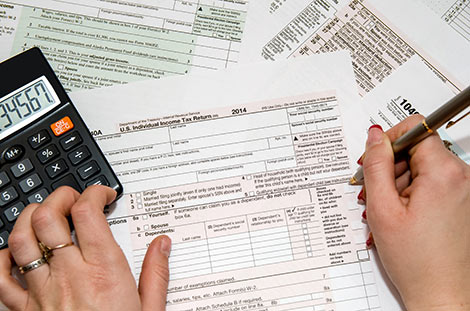 As a small business owner, you wear many hats. Add one more: tax preparer extraordinaire. Here are three tips to help you prepare records for your tax professional – and make filing an easier process.
As a small business owner, you wear many hats. Add one more: tax preparer extraordinaire. Here are three tips to help you prepare records for your tax professional – and make filing an easier process.
Tally Your Inventory
In order to calculate the cost of goods sold, your tax professional needs your inventory amount at the beginning of the tax year and then what it was at the end of the year. Make sure your inventory record is detailed. For example, if you sell apparel, your records should include the quantity of each item you stock by style, color and size. Note the cost to you, not the retail price. Instituting a formal inventory tracking system makes sense for tax return preparation, and will help you make better-informed purchase decisions throughout the year.
Detail Your Travel Expenses
Gather up all your travel receipts – airfare, train rides, car services – and total the year´s travel expenses. You should include dates, the business reasons for your travel, and a listing of attendees. If you use your car for business, you may be able to deduct all or a portion of the following car expenses: gas, oil, tolls, repairs, parking fees, insurance, and interest. Or, instead of itemizing your actual car expenses, you also have the option of calculating your business mileage. The standard mileage rate is 56 cents per mile for business miles driven during 2014. For further information on travel and car expenses, consult the IRS´s Publication 463.
Determine Your Home Office Deductions
If you work from home, you may be able to claim certain expenses on your tax return. First you must answer these two questions. Is a specific area of your residence used exclusively for your business? And is this business conducted regularly, not just occasionally or incidentally, in that area? If you can reply “yes” to both, you can move on to computing your home office expenses. Create a worksheet that shows your real estate taxes, mortgage interest, and insurance if you own your home, or your monthly payment if you rent. Also list utility charges such as electricity, oil, sewerage, water, telephone, and internet service, along with any repairs and depreciation. Take your records to your tax professional. Together you can determine what’s allowable, and then calculate the deductions correctly. The IRS’s Publication 587 is an excellent resource as you’re determining the business use of your residence.
Keeping a detailed record of your inventory, travel expenses, and home office expenses is necessary for tax preparation. These records can help your CPA reduce your tax burden.


Leave A Comment